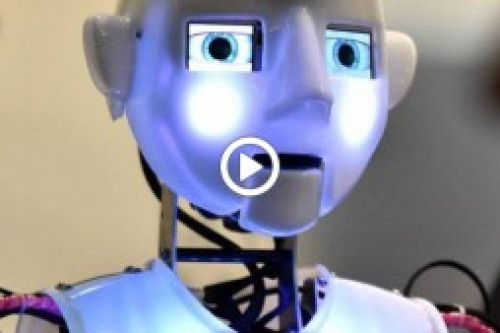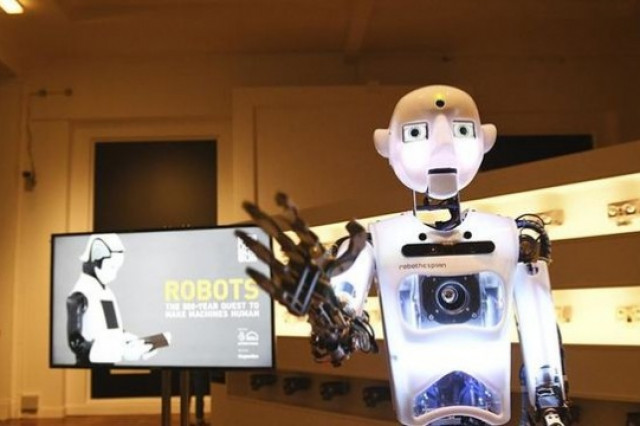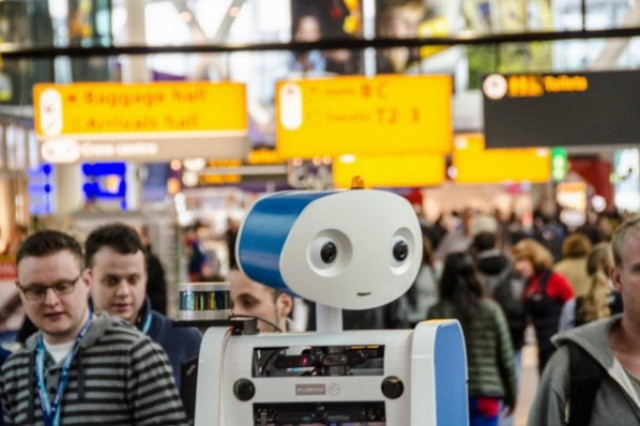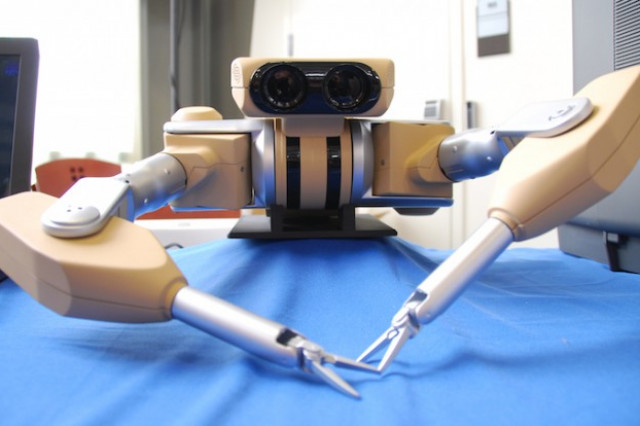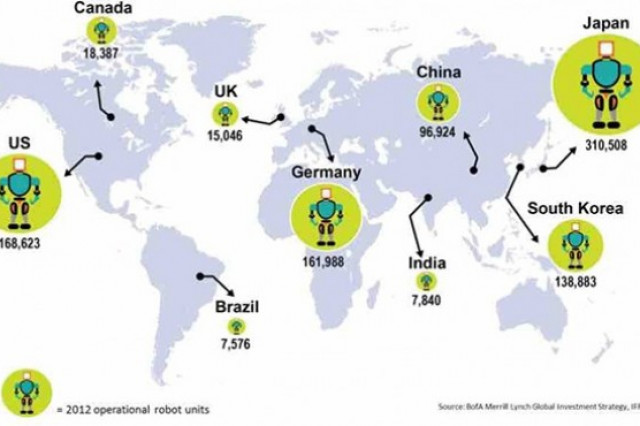Should we fear technological unemployment linked to robotics? Are our societies prepared for the economic transformations that are being spoken of? Are universal social wages and taxes on robotic production measures to be adopted in the short term? These are the questions we asked Andrew McAfee, director of the MIT Digital Economy Initiative.
A graduate of Harvard in engineering and economics, Andrew McAfee is currently directing the prestigious MIT Digital Economy Initiative. their research has led him to reflect on the transformations of companies as a result of digitization and new technologies. He believes that we have entered the second age of machines, that of robotics and artificial intelligence. For this author, thinker and professor, it is none other than a period already announced as transcendent as the first age of machines, which began with bringing steam under control.

We interviewed him on the occasion of the cycle of conferences: Unexpected Sources of Inspiration, which brought together for two days designers, political scientists, scientists, engineers and economists to present their perception of the future and solve the challenges of the present. At a time when there is much talk about robotization and artificial intelligence and its consequences in the economy, we wanted to talk to him about these problems and perhaps outline solutions.
Do you talk about the second age of machines? Could you define it and describe what the first one was?
We have been living the first age of machines for the past 240 years. It was the age when we got over the limitations of our muscles, first of all with the steam engine, then with electricity and many other technologies. Now, we infinitely multiply the power of our muscles. I think that this has been the greatest advance of humanity.
If I speak now of a second age of machines, it is because I believe that we are overcoming the limits of our spirits. Of our mental powers, just as spectacularly as we did with our muscles. And I think that such a thing will be as incredible in the history of mankind as the first age of machines.
Do you consider that our societies are prepared to face this era that mixes robots and artificial intelligence?
In general, technological advance is very fast. And the other elements of our society do not change as rapidly as technology. The business models of companies do not change as fast, the education system does not change as fast, the way to govern does not change as fast. The global point of view does not change as fast as technology.
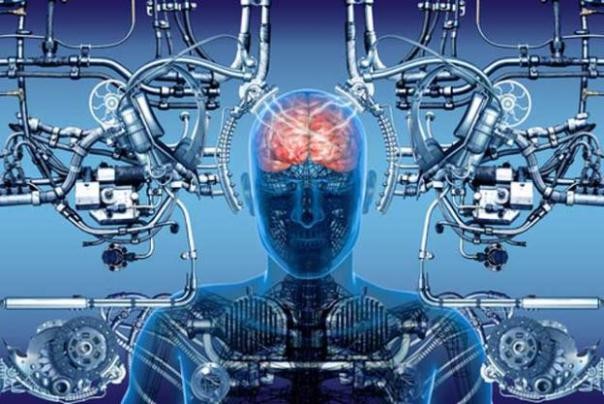
Having said that, I think it would be a bad idea to slow down technological advance. Our aim is rather to advance the rest of society quicker to adapt to technological change.
What should we do?
It is very difficult, particularly because people are happy with what they have and do not want to accelerate or change. Overcoming this inertia is a very complex process. In that sense, the first thing is to change are discourses, which would allow things to move forward more quickly. It is amazing to what extent mood modification can make things change.
If someone had told me ten years ago that gay marriage and marijuana would be legal in the United States, I would have thought that this person had an absurd discourse. At that time, they were ideas far removed from our present! But as the mood has changed, we have made changes in our laws and in our way of governing.
Do you think that a society outside of society such as Google sounds could come true?
A company like Google has a lot of money and very radical ideas. So, yes, they can create artificial cities to test their autonomous vehicles. Which for me means that it is not so different from BMW building a huge circuit to test their vehicles: they are spaces dedicated to the research and development of the companies that own them.
I do not think we are in a time when companies have become so powerful that we have to treat them differently. We have always had powerful companies and we have known how to regulate them, how to create laws and rules to frame their activities. I am not very disturbed about this.
Do you think that the universal social wage that has been rejected in Switzerland as being one of the solutions to the problem of the replacement of human labour by robots?
Not in the short or medium term. The reason why I say this is that it was already announced by a Frenchman. Voltaire said that work saved us from three great evils: boredom, vice and necessity. On this basis, the universal social wage only saves us from necessity.
There is much research done on what happens to individuals, families and communities when work does not exist. And it is never been good news.
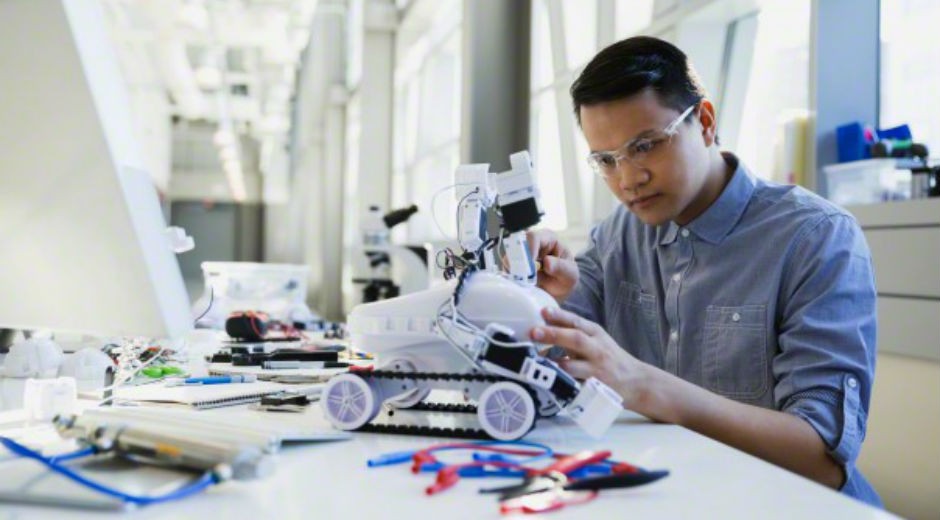
But people will lose their jobs precisely because of robotics...
People lost their jobs because of technology 2,000 years ago.
But is not this phenomenon more widespread now?
That is far from being obvious. I think it will be more widespread at some point in the future. But instead of assuming that we have arrived at this point and that the robots are going to make us unemployed tomorrow, we need to realise that this is happening at the very moment. France, like the United States, creates jobs every month.
There is no proof that we have reached a stage of massive technological unemployment. When this becomes the case, we will all ensure that we create the necessary political frameworks to control it rather than imagine an eventual future that has a lot of science fiction.
Currently, if your main interest is to create employment, you cannot consider Uber's activity to be positive. It provides uneducated young people the opportunity to work and earn money only with a car and a mobile phone.
Do you think we will need to create taxes on the production of robots?
We tax companies. We tax their profits and in many countries, we also tax the added value. I am in favour of extending these taxes, and make a greater effort to force companies to pay their taxes.
On the contrary, what I do not want is that you get to say: "Okay, it is a robot and we must tax it as such and this one is a human we must tax it differently. From the moment we start to do this, we will see societies that will say, "Look, here we have some humans, why don’t we tax them as if they were robots"? It is a game which I would not like to get into. We know how to create taxes that are much simpler to defraud. Let's continue to make taxes harder to avoid.
The problem is that collecting taxes from companies today is very difficult, because they say that they have no offices in France or the United States, and that they are located on a small duty-free island. Let's solve that problem first. And why not go further: why has a human got to be less advantageous to a company than a robot? Let's tax humans less rather than taxing robots. A hired employee has a cost higher than their salary, unlike a robot. This may add to the difficulties of licensing in certain countries. However, it is a most rudimentary economic lesson: when a company pays many of its employees’ costs, and cannot licence them will end up recruiting less.
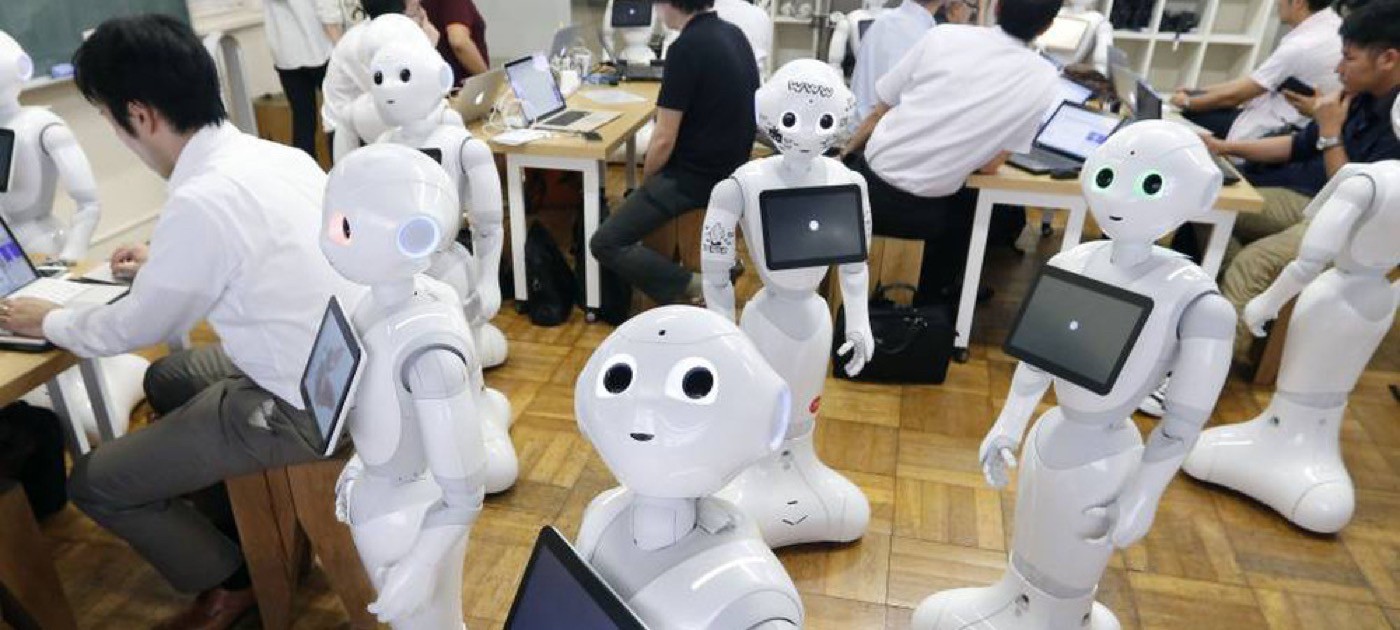
Entonces, se trata más de un problema de sociedad global que de un problema con la robótica…
Pienso que si lo que queremos son más oportunidades para las personas, debemos levantar las barreras que nos impiden crear oportunidades. Hay muchísimas cosas que nosotros podemos hacer y los robots solo son una parte. Cuando nos encontramos en crisis o sometidos a profundos cambios, la buena solución no es añadir inflexibilidad y más barreras sino todo lo contrario.
So, it is more about a global society problem than about a problem with robotics...
I think that if what we want are more opportunities for people, so we must lift the barriers that prevent us from creating opportunities. There are so many things we can do and robots are only a part. When we are in crisis or undergoing profound changes, the best solution is not to add inflexibility and more barriers, rather quite the opposite.
Returning to what I said earlier. How do you think we can change the status of people? What can be done for society and individuals that comprise it not to be afraid?
That’s is a very good question. There are two forces that redesign the economy in today's world: globalisation and technology. And these two phenomena frighten the same people: the middle class workers in the richer countries, very anxious about this matter. Therefore, the idea may be to emphasise the benefits of globalisation and technological progress.
Donald Trump is so popular because he says that globalisation has been terrible for the United States, because of China, Mexico... He is completely wrong - it’s totally false. Because of the American mentality, he has been given the opportunity to speak, and what he says is bad. What we must do is flaunt the benefits of these phenomena, identifying the challenges and the problems they entail. Only then can we find solutions.
Instead of starting with "Oh my God, robots are going to steal my job," let's start by looking at the world that technology has allowed us to create. It is fantastic, but it comes with its lot of problems. It is up to us to solve them.



